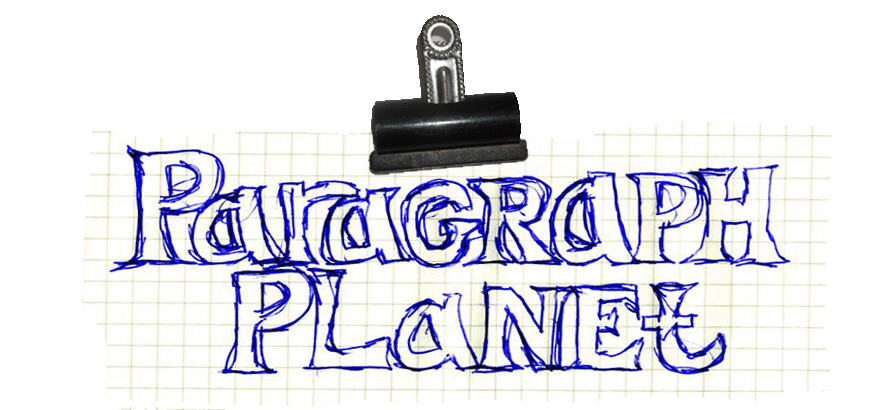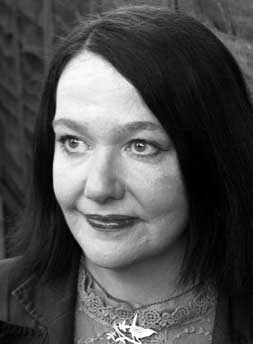









on


Erinna Mettler
 Starlings is an episodic novel set in Brighton. It comprises of a set of 18 interlinking short stories. You could read them singularly and theyíd still be stories but if you work at putting them together as you go along they add something to what youíve read before, a different perspective, new knowledge an unseen connection. Characters crop up in each otherís stories. The idea is that you get an impression of life in the city, of the way individuals, the past and the present intertwine to make it the place it is. The characters are the starlings, moving on their own but part of the flock.
†
How did the novel develop over successive drafts?
Starlings is an episodic novel set in Brighton. It comprises of a set of 18 interlinking short stories. You could read them singularly and theyíd still be stories but if you work at putting them together as you go along they add something to what youíve read before, a different perspective, new knowledge an unseen connection. Characters crop up in each otherís stories. The idea is that you get an impression of life in the city, of the way individuals, the past and the present intertwine to make it the place it is. The characters are the starlings, moving on their own but part of the flock.
†
How did the novel develop over successive drafts?
I wrote the first two chapters as short stories and, because they were both set in Brighton and featured outsiders, I thought there might be a way to link them together. I wrote the rest of it really quickly, over about nine months. A couple of the chapters started out as longer stories, Tombstone and Burning Feathers, for example, were one story with the two strands intercut. It didnít work so I separated them; itís more interesting structurally anyway. The Wife of Joshua Bones had a whole subplot with Diaís family life but I thought it was a bit boring so I made the chapter her work of fiction and cut all the reality out of it. About halfway through I decided to include some of Brightonís significant history so I wrote about the mod riots and the burning of the pier. I had to create a spread-sheet to keep track of the characters and their histories, the important dates, how old everyone was etc. Then there was an edit from suggestions my publisher had and then two further Ďfinalí edits after that. What is your†favourite aspect†of the writing process?
I enjoy the first spark, the triggering of an idea from something Iíve seen or heard or remembered and then just going with the flow and seeing where it takes me. I also enjoy editing it when Iíve finished, cutting out the chaff and embellishing other bits. I get into a bit of a tranceĖlike state with both stages where Iím not interested in anything else and get annoyed when anything interrupts me. † What are you working on at the moment?
I was working on a new novel called Pamelaís Dream and Iíd got about a third of the way through but Iím finding that my time is more and more taken up with promoting Starlings so, I made the decision to devote all my time to it until this July (a year after publication) just to give it that final push and see where it gets me. Iím still writing shorts though including a series based on famous typewriters. Which authors have influenced your writing?
Iím extremely fond of Paul Auster. I think heís a genius, the way he captures human emotion with the most economical and poetic prose. He understands co-incidence and how we are all bound together in little ways. Iíve been re-reading Edith Wharton lately, again for the economy of language. Anything by Graham Green. Most of Ian McEwan. I like the poets too, Byron, Keats, Blake, Emily Dickinson, Ted Hughes. The Stephen King book on writing is truly inspirational, I would recommend it to anyone interested in the process. For short stories William Trevor. And I absolutely adore Dr. Seuss, especially Green Eggs & Ham, and strive for such virtuosity of form and content! The best way for any writer to practice performance is to read a Dr. Seuss book aloud. How important is the internet to a writer?
Well people wrote before it existed, so on one level not at all. On another level it has greatly enhanced the exchange of information. It is unbelievably easy to research and connect with experts online; you can read examples of almost anything, watch documentaries and movies, listen to any music. It is also invaluable for promoting work and connecting with authors and organisations. Of course all this also means that it is easy not to write anything but to spend all your time talking to other writers and looking up useless facts! Any tips for writers?
You have to actually write to be a writer, and itís best to write every day, even if itís not much. I would also recommend having a peer group you trust, to read and evaluate your work, a regular writing group or trusted friends. It helps if they share work too because youíll begin to recognise what good writing is, what works and what doesnít. Read what youíve written out loud, that way youíll pick up on mistakes you wouldnít notice otherwise and you can work out if the rhythm is right, if it flows in an engaging way. Tell me about Rattle Tales?
Rattle Tales is an unbelievably talented group of writers which emerged from the MA in Creative Writing at Sussex University. They are my trusted peer group. We workshop once a month and stage a short story night in Brighton showcasing our own work and that of guest writers. We involve the audience by asking for questions and comments after each reading Ė oh, and we give out football rattles to make it noisy. Weíre going to Brighton Fringe this year and hopefully a couple of other festivals so if anyone fancies submitting a story they should look at our website here Click here for Erinna's website
